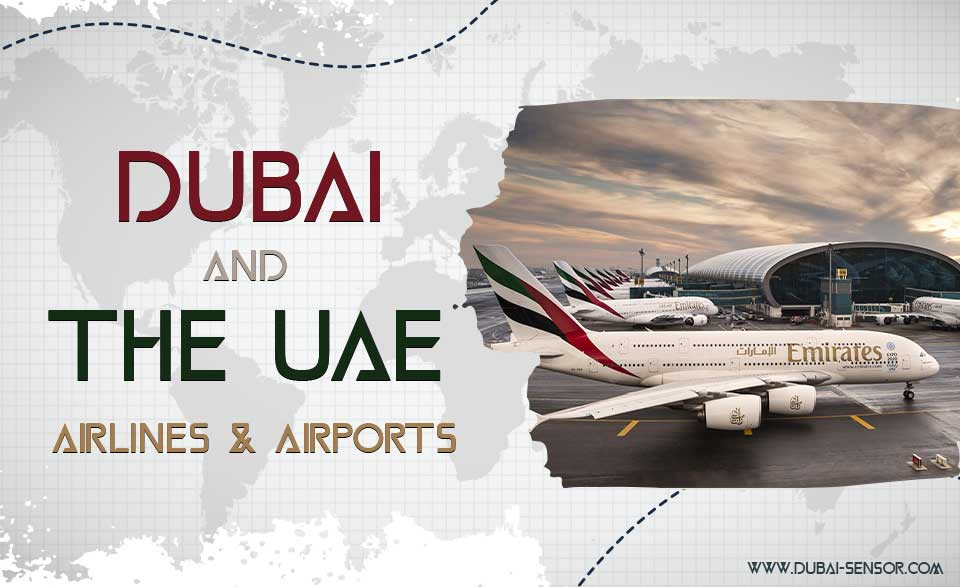Dubai and The UAE Airlines and Airports
Emirates has expanded into complementary industries and sectors such as airport services, engineering, catering, and tour operator operations. Emirates has seven subsidiaries, while its parent company has over fifty. The company employed 59,519 people at the end of its fiscal year on March 31, 2020, of which 21,789 were cabin crew, 4,313 were flight deck crew, 3,316 were in engineering, and 12,627 were listed as other, 5,376 were at overseas stations, and 12,098 were at subsidiary companies. The Emirates Group, Emirates' parent company, employed 105,730 people.
Emirates offers its employees comprehensive health plans and paid maternity and sick leave. Emirates also employs profit sharing and merit pay as part of its competency-based approach to performance management.
Emirates is also the largest airline in the Middle East, with over 3,600 flights per week from its hub at Dubai International Airport's Terminal 3 before the COVID-19 pandemic. Its fleet of nearly 300 aircraft serves over 150 cities in 80 countries across six continents.
Emirates is the 4th largest airline worldwide by scheduled revenue passenger-kilometers flown and the world's second-largest by freight tonne-kilometers.
Dubai International Airport
Dubai International Airport (IATA: DXB, ICAO: OMDB) serves Dubai, United Arab Emirates, and is the world's busiest airport in terms of international passenger traffic. It is also the world's nineteenth busiest airport in terms of passenger traffic, one of the busiest cargo airports, the busiest airport in terms of Airbus A380 and Boeing 777 movements, and the airport with the highest average number of passengers per flight. DXB handled 88 million passengers, 2.65 million tonnes of cargo, and 409,493 aircraft movements in 2017.
Dubai International Airport is located in the Al Garhoud district, 2.5 nautical miles (4.6 km; 2.9 mi) east of Dubai, on a 7,200-acre (2,900-hectare) plot of land. Terminal 3 is the world's second-largest building by floor space and the world's largest airport terminal. Dubai International Airport installed the region's most extensive solar energy system in July 2019 as part of Dubai's goal to reduce 30 percent of the city's energy consumption by 2030.
Emirates Airline's hub airport is Dubai International (DXB), and the airline has its own terminal 3 with three concourses that it shares with flydubai. The Emirates hub is the largest airline hub in the Middle East, handling 51% of all passenger traffic and 42% of all aircraft movements at the airport. Dubai Airport also serves as a hub for the low-cost carrier flydubai, which accounts for 13% of passenger traffic and 25% of aircraft movements at DXB. The airport can handle 90 million passengers per year. As of January 2016, 140 airlines operated over 7,700 weekly flights to over 270 destinations on all inhabited continents. In 2018, over 63% of airport passengers were connecting.
In 2014, Dubai International indirectly supported over 400,000 jobs and contributed over US$26.7 billion to the economy, accounting for approximately 27% of Dubai's GDP and 21% of Dubai's employment.
Main airlines based at DXB
- Emirates Airlines is the largest airline at the airport, with an all-wide-body fleet of over 200 Airbus and Boeing planes based in Dubai, serving the Middle East, Africa, Asia, Europe, North America, South America, Australia, and New Zealand. It is based in Terminal 3, Concourses A, B, and C.
- Emirates SkyCargo, an Emirates subsidiary, operates scheduled all-cargo services between Dubai and the rest of the world.
- Flydubai is a low-cost airline that plans to operate over 100 planes on scheduled passenger flights to and from Dubai, the Middle East, Africa, Europe, and South Asia. It serves selected destinations from Terminal 2 and, as of December 2018, Terminal 3.
The Dubai Aviation Club caters to recreational flying in Dubai by providing flying training for private pilots and facilities for private owners.
The Dubai government provides:
- Short and long-range search and rescue services.
- Police support.
- Medical evacuation.
- General purpose flights.
- All VIP flights to and from the airport.
Destinations
In May 2015, Emirates operated over 3,000 flights per week from Dubai, the hub, to over 150 destinations in over 70 countries across six continents. Emirates' global network spanned 157 destinations in 83 countries before suspensions due to the COVID-19 pandemic in March 2020.
Alliance
Emirates has worked with other airlines but is not a member of any of the three global airline alliances: Oneworld, SkyTeam, or Star Alliance. The airline briefly considered joining Star Alliance in 2000 but ultimately chose to remain independent. The reasoning for this was later revealed by the airline's senior vice-president of commercial operations worldwide, who stated that "your ability to react in the marketplace is hampered because you require consensus from your alliance partners."
Here are some related articles you may find them helpful:
Dubai Major Industries and Markets
Industrialization in The UAE (C4IR UAE)
Recent Posts
-
Booster Pump Troubleshooting and Maintenance: How to Fix and Prevent Common Issues
1. Introduction Imagine turning on your faucet only to be greeted with a weak trickle of water when …22nd Apr 2025 -
Energy-Efficient Booster Pumps: Selection and Tips for Maximizing Performance
1. Introduction Imagine never having to deal with fluctuating water pressure, noisy pumps, or skyroc …19th Apr 2025 -
Booster Pumps for Sustainable Water Systems: Irrigation and Rainwater Harvesting Solutions
1. Introduction Water scarcity is no longer a distant threat—it’s a reality affecti …16th Apr 2025




